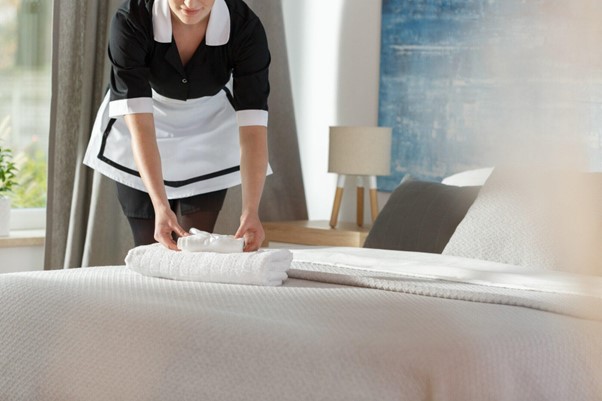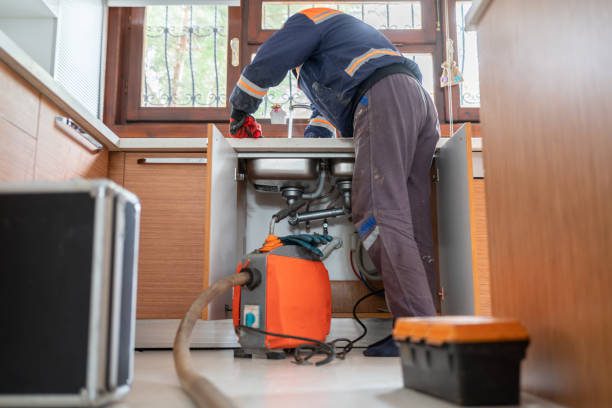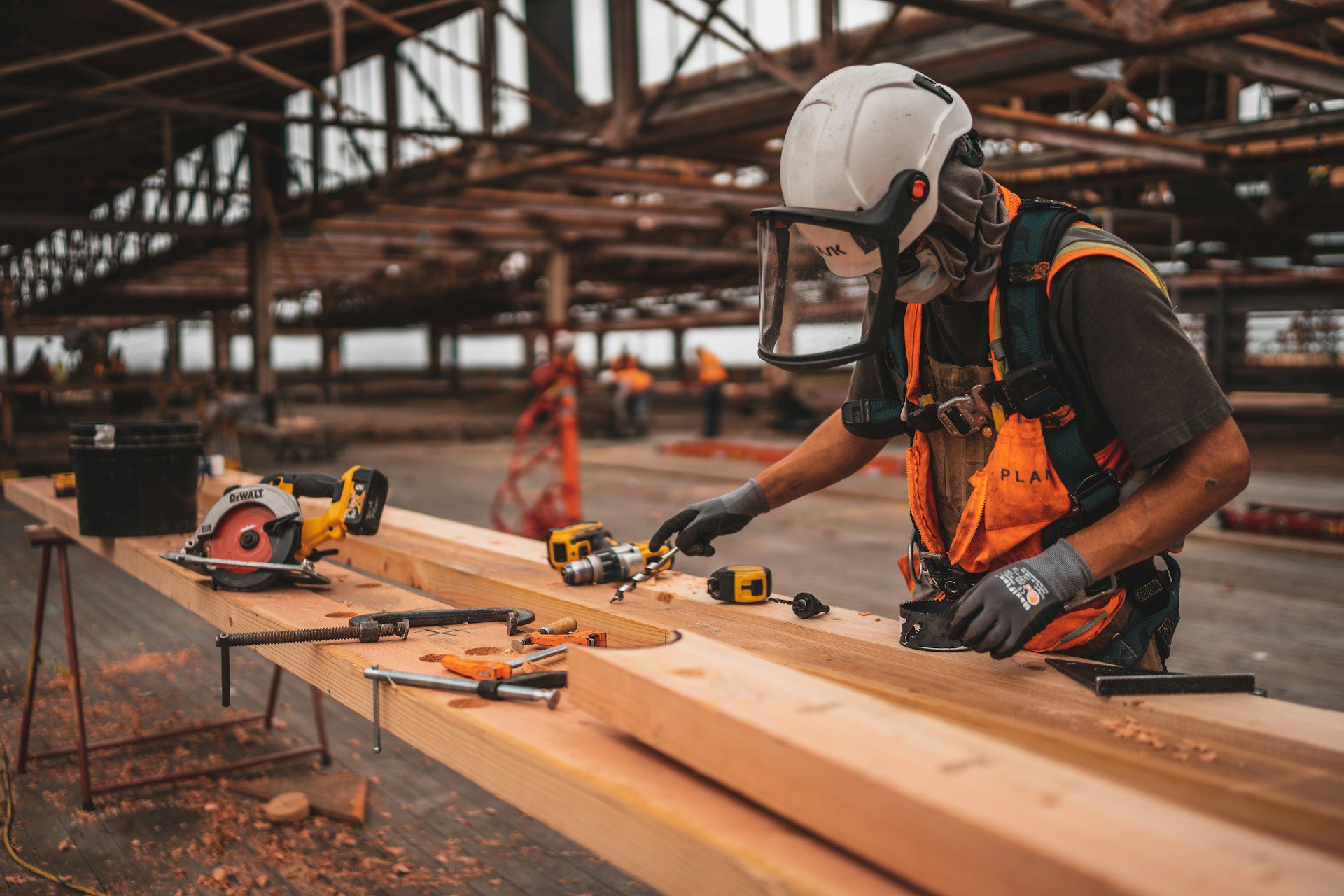
Manufacturing environments present cleaning challenges that most people never consider. The industrial setting creates contamination patterns that differ dramatically from standard office spaces. Production floors accumulate substances that require specific expertise to handle safely and effectively.
Traditional cleaning approaches fall short in manufacturing facilities where commercial cleaners must understand industrial processes and safety protocols. These environments generate oil residues, metal shavings, chemical deposits, and fine particulate matter that standard cleaning services cannot properly address. Professional industrial cleaning teams bring specialised knowledge and equipment designed for manufacturing environments.
Contents
The Hidden Complexity of Manufacturing Contamination
Manufacturing floors present contamination challenges that go far beyond typical workplace cleaning. Production processes create layers of industrial residue that build up over time in unexpected places.
Oil and Grease Accumulation: Heavy machinery operations spread lubricants and hydraulic fluids across surfaces, creating slip hazards and attracting additional dirt. These petroleum-based substances require specific solvents and cleaning techniques that general cleaning services may not possess or understand properly.
Fine Particulate Matter Challenges: Manufacturing processes generate microscopic particles that settle into ventilation systems, electrical components, and hard-to-reach corners. These particles can interfere with sensitive equipment and create respiratory hazards if not removed using proper filtration methods.
Chemical Residue Management: Production chemicals leave residues that can react with standard cleaning products, potentially creating toxic combinations. Professional teams understand which cleaning agents work safely with different industrial chemicals and manufacturing byproducts.
Metal Shavings and Debris Removal: Machining operations produce metal fragments that can damage standard cleaning equipment and pose injury risks to untrained personnel. Specialised vacuum systems and handling procedures are essential for safe removal.
Safety Standards That Cannot Be Compromised
Manufacturing facilities operate under strict health and safety regulations that require specialised cleaning knowledge. Standard cleaning services lack the training to maintain compliance with industrial safety standards.
Slip and Fall Prevention Protocols: Industrial floors often become contaminated with oils, coolants, and other slippery substances that create significant liability risks. Professional cleaning teams use specialised degreasing agents and anti-slip treatments designed specifically for manufacturing environments.
Fire Safety Risk Management: Many manufacturing byproducts are combustible, requiring careful handling and disposal procedures. Cleaning teams must understand which substances pose fire risks and use appropriate removal methods to prevent dangerous accumulations.
Regulatory Compliance Requirements: Manufacturing facilities must meet HSE guidelines and industry-specific regulations that general cleaning services may not understand. Professional teams stay current with changing compliance requirements and documentation standards that protect your business from violations.
Personal Protective Equipment Standards: Industrial cleaning requires specialised safety equipment and training that standard services cannot provide. Professional teams arrive with appropriate respirators, chemical-resistant clothing, and safety protocols designed for hazardous manufacturing environments.
Equipment Protection Through Professional Maintenance
Manufacturing machinery represents substantial capital investments that require proper maintenance to deliver expected returns. Professional cleaning plays a crucial role in protecting these valuable assets.
The following maintenance benefits justify the investment in specialised cleaning services:
- Precision Component Care: Sensitive machinery components require gentle cleaning methods that remove contamination without damaging delicate parts or affecting calibration settings.
- Lubrication System Maintenance: Professional teams understand how to clean lubrication points without removing essential oils or introducing contaminants that could cause premature wear.
- Electrical System Protection: Manufacturing equipment contains complex electrical systems that require specialised cleaning techniques to prevent short circuits or component damage from moisture or chemical exposure.
- Preventive Maintenance Integration: Professional cleaning teams work alongside maintenance schedules to identify potential problems before they cause expensive breakdowns or production delays.
Heat Exchanger Efficiency: Manufacturing processes generate significant heat that requires proper ventilation and cooling system maintenance. Professional cleaning teams remove dust and debris that reduces heat transfer efficiency and increases energy costs.
Filtration System Optimisation: Many manufacturing processes depend on air filtration systems that lose effectiveness when contaminated. Professional cleaning extends filter life and maintains air quality standards essential for both equipment protection and worker health.
Cost Analysis of Professional Versus Amateur Cleaning
Manufacturing facilities that attempt to save money with general cleaning services often discover hidden costs that exceed professional service fees. Amateur cleaning can actually increase operational expenses through several mechanisms.
Equipment Damage Prevention: Untrained cleaning personnel may use inappropriate chemicals or methods that damage sensitive components, resulting in repair costs that far exceed professional cleaning fees. Manufacturing equipment requires specific cleaning protocols that protect investments.
Production Downtime Reduction: Professional cleaning teams work efficiently around production schedules, minimising disruption to manufacturing operations. Amateur services often require longer downtime periods and may create contamination that delays restart procedures.
Insurance and Liability Considerations: Many insurance policies require professional cleaning documentation for manufacturing environments. Amateur cleaning may void coverage or increase premium costs due to elevated risk profiles associated with improper industrial cleaning practices.
Energy Efficiency Benefits: Clean manufacturing equipment operates more efficiently, reducing energy consumption and extending component life. Professional cleaning maintains optimal performance levels that amateur services cannot achieve through proper contamination removal and system maintenance.
Conclusion
Manufacturing facilities require cleaning expertise that goes beyond standard commercial services. The complex contamination patterns, safety requirements, and equipment protection needs demand professional teams with industrial cleaning knowledge and specialised equipment. Attempting to save money with amateur cleaning services often results in higher costs through equipment damage, safety violations, and operational inefficiencies. If your manufacturing facility needs professional cleaning that protects your investment while maintaining safety standards, contact qualified industrial cleaning specialists who understand the unique challenges of your production environment.









